

Numbering over 476 million, Indigenous Peoples live in over 90 countries and seven sociocultural regions of the world. They often reside in sites of high biodiversity, and they steward rich traditional knowledge and biocultural diversity. Scientists found that 80% of the remaining world’s biodiversity is located in the lands and territories of Indigenous Peoples. Yet, unfortunately, Indigenous Peoples often continue to face discrimination and are put into vulnerable situations.
Indigenous Peoples have unique food systems anchored in sustainable livelihood practices, which have evolved and adapted to the specific ecosystems in their territories. Indigenous Peoples’ food systems are increasingly seen as holistic and regenerative food systems and possible game-changing solutions. The recent United Nations Food Systems Summit held in 2021 set the momentum for food systems transformation to achieve the Sustainable Development Goals by 2030. However, the UN Food Systems Summit has not paid sufficient attention to Indigenous Peoples’ food systems. Coordinated by the FAO Global-Hub on Indigenous Peoples’ Food Systems, Indigenous and non-Indigenous experts, scientists, and UN staff responded by developing a White/Wiphala Paper on Indigenous Peoples’ food systems. The document provided evidence and advocated that lessons can be learnt from Indigenous Peoples’ food systems, which will contribute to the resilience and sustainability of food systems worldwide and support the wellbeing of Indigenous Peoples. At the end of the UN Food Systems Summit, several countries supported the emergence of the Coalition on Indigenous Peoples’ Food Systems.
IFAD, in line with the UN 2030 Agenda for Sustainable Development, and particularly its commitment to “leave no one behind”, supports Indigenous Peoples’ self-driven development through projects that strengthen their knowledge, culture, identity, natural resources, and human rights. In 2009, IFAD’s Policy on Engagement with Indigenous Peoples was approved. It sets out the principles of engagement IFAD will adhere to in its work with Indigenous Peoples, and it aims to empower Indigenous Peoples through a development approach that builds on their culture and identity. In 2021, IFAD released Good Practices in IFAD’s Engagement with Indigenous Peoples. It shares practical examples from IFAD’s investment projects and small projects supported by the Indigenous Peoples’ Assistance Facility (IPAF). Since 2007, IPAF has been providing small grants of up to US$50,000 for projects which foster self-driven development and improve the wellbeing of Indigenous Peoples.
To further strengthen the partnership, IFAD has established an Indigenous Peoples’ Forum, promoting dialogue and consultation among Indigenous Peoples’ organisations, IFAD staff, and Member States. Through the creation of the Indigenous Peoples’ Forum and IPAF, strong partnerships have been established between IFAD and Indigenous peoples’ organisations, the UN Permanent Forum on Indigenous Issues, and other like-minded organisations.
IFAD has also been supporting the better use of agrobiodiversity with specific reference to neglected and underutilized species (NUS) and greater recognition of the traditional knowledge of Indigenous Peoples associated with the use of NUS and wild edibles as important resources for tackling food and nutrition insecurity, especially in the context of climate change. See the Operational Framework for Supporting Nutrition-Sensitive Agriculture through Neglected and Underutilized Species, accompanied by five related How to Do Notes offering recommendations and methods, approaches, and tools for integrating NUS in the design and implementation of IFAD-funded projects to support nutrition-sensitive agriculture.
Nutrition is at the centre of IFAD’s Strategic Framework (2016-2025). However, as nutrition and food systems approaches have evolved in the past years, there is a need for IFAD to deepen the knowledge on nutrition of Indigenous Peoples and establish a common understanding on how to improve nutrition outcomes in project areas that are home to Indigenous Peoples, taking into account their food systems, livelihood, knowledge, views, cultures, and governance systems.
The Government of Canada made available financial resources to IFAD for a project called Nutrition for Indigenous Peoples. The project aimed to develop digital guidance (the present toolbox) on sustainable and resilient Indigenous Peoples’ food systems for improved nutrition to help IFAD’s investments (and other organisations) elaborate pathways and methodologies on sustainable and resilient Indigenous Peoples’ food systems for improved nutrition.
Therefore, this toolbox, which is a commentary to IFAD’s How-to-do Note on mainstreaming nutrition into COSOPs and investment projects, has been developed to contain methodologies and resources that can be applied in designing, implementing, and evaluating Indigenous Peoples’ nutrition and food systems development projects. The generated findings can also be used in advocacy and policy work at the local, regional, national, and global levels. The toolbox was developed for project designers, staff, project management units, consultants, and partners of IFAD, UN organisations, and development organisations operating in Indigenous Peoples’ territories. Nevertheless, the toolbox is freely available for use by anybody interested. The methodology is best suited for rural contexts. It can design and support new nutrition-sensitive projects in Indigenous Peoples’ territories, but it can also fit in the context of nutrition-sensitive agriculture strategies, NUS framework, diversification for climate resilience, agroecology and regenerative agriculture, and nature-based solutions.
As a leading Indigenous Peoples’ Organisation, the Indigenous Partnership for Agrobiodiversity and Food Sovereignty (TIP) was commissioned by IFAD to develop the toolbox. The toolbox development was a collaborative effort by a multidisciplinary and intercultural team of Indigenous Peoples and non-Indigenous experts. It was led by Phrang Roy, Coordinator of TIP, and prepared by Lukas Pawera, Dunja Mijatovic, Alethea Kordor Lyngdoh, Harriet Kuhnlein, Francisco Rosado May, and Ajay Nayak. The production of participatory videos was led by Oihane de Gana Romero, Marco Antonio Arango, Tyrel Lyngdoh, Karl Vaekesa, and Michael Tiampati. The participatory videos were supported by logistics or technical inputs from Viviana Sacco, José Sialer Pasco, Christopher Duche Perez, Joel Njojo, Pitakia Tikai, Merrysha Nongrum, and Rimchi Chenxiang Marak. The toolbox was developed with the administrative help of Andrea Selva. The whole team gratefully acknowledge the review and recommendations by IFAD under the coordination of Antonella Cordone. The Government of Canada is acknowledged for providing the funding.
We are deeply grateful to the communities that participated in the making of the videos for sharing their knowledge and experiences.



Made with
HTML Editor